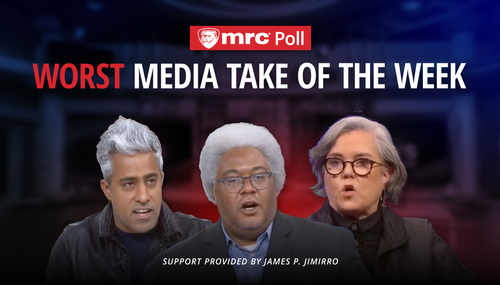 Panama City, FL -- Something unique about the Florida judicial system is, barring objection of counsels and the court, jurors get to ask questions of the witnesses. These questions could be used as possible insight into a jury’s temperament and possible mindset as a trial unfolds. In the case of the $1 billion defamation trial against CNN, the tea leaves seemed to indicate on Wednesday that they weren’t looking too favorably on CNN just hours before they’re set to start deliberations.
Panama City, FL -- Something unique about the Florida judicial system is, barring objection of counsels and the court, jurors get to ask questions of the witnesses. These questions could be used as possible insight into a jury’s temperament and possible mindset as a trial unfolds. In the case of the $1 billion defamation trial against CNN, the tea leaves seemed to indicate on Wednesday that they weren’t looking too favorably on CNN just hours before they’re set to start deliberations.
The questions to CNN reporter Katie Bo Lillis (pictured above) pressed her on her treatment of Navy veteran and Plaintiff Zachary Young, and called into question her and CNN’s apparent thought that people were “obliged” to speak to CNN.
Noting that “for the record, there were no objections to the questions from counsel or the court,” Judge William Scott Henry of the 14th Judicial Circuit of Florida read the questions.
The first two seemed like indictments of CNN’s arrogance and approach to investigating stories:
HENRY: Do you feel that Americans are obligated to speak to you/CNN?
LILLIS: No. No one is obligated to speak to us. It is their free decision if they choose to or don’t choose to.
HENRY: All right. To what length must someone go to in order not to speak to you? Must they speak to you to not speak with you?
LILLIS: [Laughter] That’s a really good question. There’s a lot of people that I have a responsibility to.
Throughout the trial, the jurors have been seeing the private messages and testimonies of CNN journalists like Lillis and Alex Marquardt in which they openly treated refusal to talk to them or pull back as “suspicious,” to quote the latter.
“At what point do you accept someone not wishing to speak or comment,” asked one juror. Lillis replied: “It very, very much depends on the context. It depends on what – what judgement I – you know, I or my news organization can make about what the greater priority is.”
The questions to Lillis were also pointed, such as this one where the juror confronted how Lillis approached her interaction with Young:
HENRY: “A chance to make your case to keep your name out of it” sounds akin to “guilty until proven innocent,” can you clarify how your approach is really the opposite, “innocent until proven guilty?”
LILLIS: Well, first of all, we’re not a court of law. The standard for whether someone’s conduct is newsworthy, whether it winds up in a news article is not whether it’s illegal or not it’s um – it’s – in this instance it is you know, whether it should be exposed that someone could be profiting off of the misery of Afghans.
“Can you understand, given this fresh perspective, that your approach could scare someone,” Henry asked as the follow up from the same juror.
 A lot of the defensive testimony from Lillis and Marquardt revolved around how they personally didn’t like how Young disengaged from Afghans who didn’t fit his requirement of needing a corporate sponsor.
A lot of the defensive testimony from Lillis and Marquardt revolved around how they personally didn’t like how Young disengaged from Afghans who didn’t fit his requirement of needing a corporate sponsor.
So, one of the jurors asked: “If Mr. Young cannot help an Afghan, what do you feel is an appropriate way to disengage?”
As NewsBusters previously reported with Marquardt, the juror questions to him weren’t favorable either:
Why, after several examples of Mr. Young cut off communication with people without [corporate] funds, did you still feel as if he was still exploiting Afghans?
(…)
Do you and your colleagues believe that Mr. Young should have evacuated anyone who requested help without charging?
(…)
How do you feel knowing that Mr. Young can no longer work in the space that he is trained on as a result of your piece?
And with the testimony of CNN senior editor Thomas Lumley, it was the lack of questions that was telling.
As this author chronicled in an X thread, Lumley’s testimony featured him being grilled on internal CNN messages he sent that were openly critical of Marquardt’s report and particularly worried about it being “full of holes like Swiss cheese” and “80% emotion and 20% obscured fact,” among other criticisms.
Lumley’s testimony lasted hours and was apparently so thorough that the jurors felt they had all the information they needed from him.
Witness testimony appears set to wrap up Thursday with CNN vice president for newsgathering Adam Levine. The jurors are set to begin deliberations shortly thereafter.




